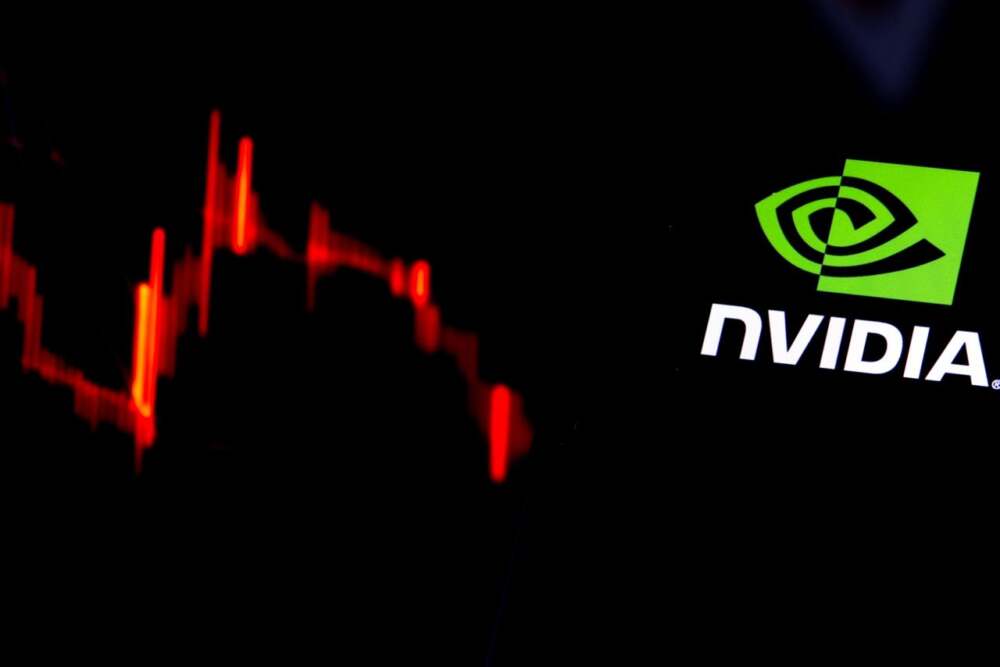The artificial intelligence boom that has dominated Wall Street over the past two years is beginning to show cracks, with Nvidia — the sector’s leading chipmaker — at the center of the storm. Despite posting record-breaking earnings, the company’s stock slid sharply this week, reigniting fears that investor expectations for AI may have grown too lofty.
Record Sales, but Market Unease
Nvidia reported quarterly revenue that exceeded previous highs, fueled by surging demand for AI chips used in data centers and advanced computing. Yet, instead of rallying, the company’s shares fell more than 3% — the steepest drop in months. Analysts say the decline reflects not just profit-taking, but also concerns about how long the explosive growth can last in the face of export restrictions, global competition, and the risk of oversaturation in the AI market.
A Heavyweight in the Stock Market
Nvidia now holds a dominant position in the U.S. economy, making up nearly 7% of the S&P 500’s total value. This means any fluctuation in its stock has an outsized effect on retirement accounts, index funds, and the broader market. Investors worry that such concentrated weight could make portfolios more vulnerable if enthusiasm for AI cools further.
Speculation vs. Reality
Behind the headlines, a growing concern is that AI adoption is moving slower than the hype suggests. Many companies investing heavily in generative AI tools have yet to report meaningful revenue gains. This disconnect has led some economists to warn of a potential “AI bubble,” reminiscent of the dot-com era, where excitement outpaced business fundamentals.
Looking Ahead
Despite the turbulence, optimism about Nvidia’s long-term outlook remains strong. The company has projected even higher revenue in the coming quarter, citing robust demand for its chips. Wall Street analysts remain divided: some believe Nvidia’s leadership in AI infrastructure will secure sustained growth, while others caution that markets may need to recalibrate expectations.
For now, Nvidia’s stumble serves as a reminder that even the most celebrated companies can face sharp reversals — and that the future of AI, though promising, may not be a straight line upward.
















Leave a Reply